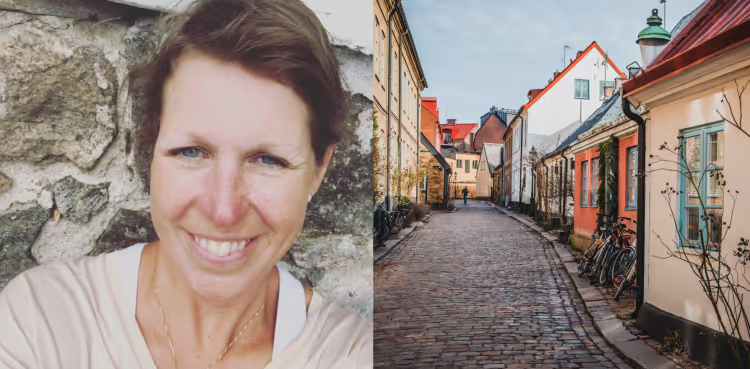Coordinating an ICORN City of Refuge: An Interview with Anna Hjerpe

Anna Hjerpe, the ICORN coordinator in Lund, Sweden, gives insight into the different aspects of the job, and shares her personal experiences of being an ICORN coordinator.
Lund, a southern Swedish city, well-known for its university, became a member of ICORN in 2018. Since then, Anna Hjerpe has been the Lund’s ICORN coordinator, responsible for the smooth running of the ICORN programme and for hosting the two residents the city has, so far ,welcomed. In an interview with ICORN, Anna gives her perspective on working as ICORN coordinator and reflects on the impact of her work.
ICORN: What does the typical day of an ICORN coordinator look like?
Anna: It varies a lot- at the beginning of a residency it can be very hectic and much of the work revolves around practical matters. This is also the case at the end of an ICORN residency. During the 2-year period of residency, it is more about keeping in touch with the ICORN resident, listening to them and checking for any issues which need to be solved. But social meetings are also important. For example, just before sitting down to do this interview, I went for a walk in Lund’s beautiful snow-covered city park with our current ICORN resident. It is nice to experience things like this together.
ICORN: What are the best and most difficult aspects of being an ICORN coordinator?
Anna: The best part is getting to know a new person and being able to help someone in need. This really gives me new perspectives on my own life. Some of the difficulties can include communicating with authorities, which can be bureaucratic, or having to solve problems which are sometimes outside of your capacity. But I find that if you explain and are open, there will be understanding between everyone involved.
ICORN: What impact do ICORN residencies have on the Cities of Refuge?
Anna: The presence of ICORN residents raises the issues of freedom of speech and the right to work safely. It highlights the democratic values within our society and globally. Our ICORN artists also interact with Lund and its networks, always creating new experiences and meetings for all involved.
ICORN: In what ways does the ICORN coordinator work to improve understanding of the ICORN programme and the role of the ICORN coordinator in the local community?
Anna: In many ways- both within the closest workgroup but also within the municipality as a whole and especially when working with local politicians. To be a City of Refuge within ICORN is an easy and practical way for a municipality or a city to actively work for freedom of expression in the cultural field. I talk a lot about the ICORN programmes in meetings and get invited to talk about it in different parts of the municipality. We also arrange public events, often in collaboration with the public libraries, where citizens can meet the ICORN resident and ask questions.
ICORN: Does the role of ICORN coordinator change if a resident in the city chooses not to be public vs. if they are public, and if so, in what ways?
Anna: Not so much. In Lund, we are starting to work more with the fact that we are a City of Refuge which is not exclusively centred around the ICORN resident. By doing this, we can talk about our work even if our ICORN guest does not wish to be public for security or other reasons. We also have experience of two ICORN residents that have not needed to network locally which has helped us work a bit differently to make the municipality and the public aware that Lund is a member of ICORN and what that means.



